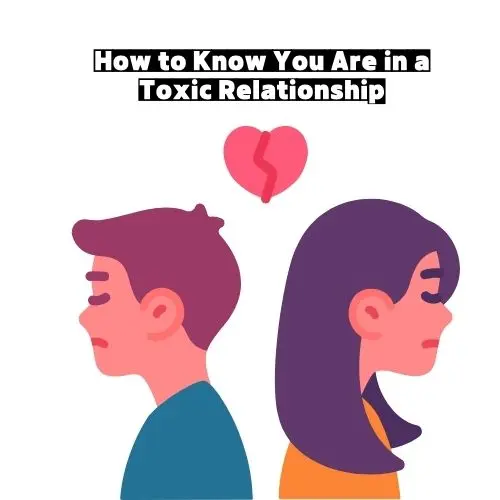Relationships require work, but they should ultimately enrich your life, not drain you. However, it’s not always easy to recognize when a relationship turns unhealthy. Toxic relationships exhibit damaged or abusive patterns that can emerge subtly at first. This article provides clarity on key signs you may be in a toxic relationship, along with guidance on steps to take.
Signs of a Toxic Relationship
| Sign | Description |
|---|---|
| Controlling or possessive behavior | Tries to control who you spend time with, what you wear, what you post online or demanding constant check-ins |
| Dishonesty or deception | Lies, omits important details or deliberately hides certain behaviors from you. |
| Manipulation | Play mind games, guilt trips, or deny things they said to make you feel crazy |
| Disrespect | Calls you hurtful names, shames you, or frequently rude or insulting toward you |
| Emotional rollercoaster | Dramatic shifts in mood from very loving to very upset, keeping you on edge |
| Volatile conflict | Frequent heated arguments escalate quickly, sometimes with throwing things, slamming doors, etc. |
| Jealousy issues | Accusing you of cheating without basis, isolating you from friends/family out of jealousy |
| Deflecting responsibility | Never admitting fault or blaming you for their anger, substance abuse, mean words, etc. |
| Instilling self-doubt | Making you question your own judgment, feelings, or sanity through mind games |
| Sabotaging your success | Putting you down about your career or passions, making you miss work events, etc. |
| Guilt-tripping | Playing the victim to make you feel guilty for their misery or to get their way |
| Dr. Jekyll/Mr. Hyde persona | Sudden shifts in demeanor from kind to cruel or romantic to rageful |
| Violating boundaries | Ignoring your privacy needs, touching you sexually when you’ve said no, pressuring you into things you’re uncomfortable with |
| Gaslighting | Denying or lying about things they’ve said or done to make you doubt reality |
| Braggadocio | Bragging excessively or putting you down to feel superior |
| Substance abuse | Alcohol/drug abuse leads to angry outbursts, violence, neglect, etc. |
| Physical violence | Hitting, shoving, hair-pulling, destroying property, or making threats |
5 Things to Remember if You See These Signs
- It’s not your fault. No matter what they say, you don’t “deserve” abuse or cause their behavior.
- Speak up. Communicate clearly how their actions hurt you and that they need to change. Their reaction will be telling.
- Set boundaries. Demand to be treated with respect. Walk away if they become abusive. Stick to your guns.
- Have an escape plan. Quietly open a separate bank account and set up another place to stay in case you need to leave quickly.
- Get outside help. Don’t suffer alone. Confide in non-judgmental friends/family or get professional counseling. You deserve support.
Assessing if You’re in Danger – 20 Key Questions to Ask Yourself
- Do they insult, ridicule or belittle you?
- Are they extremely jealous and possessive?
- Do they try to control or isolate you?
- Do they explode in rage or threaten violence?
- Do they blame their behavior on alcohol or drugs?
- Do they discourage your relationships with family/friends?
- Do they accuse you of cheating without cause?
- Do they violate your privacy boundaries?
- Do they force you into unwanted sexual acts?
- Do they manipulate or guilt trip you into compliance?
- Do they constantly text/call demanding to know where you are? Who you’re with?
- Do they shame you or withhold affection as punishment?
- Do they deny or minimize their harmful behavior?
- Do they have drastic mood swings?
- Do they make you feel like you’re “walking on eggshells”?
- Do they betray your trust or go behind your back?
- Do they try to control or monitor your spending?
- Have they destroyed property or thrown things in anger?
- Do they play mind games with you or try to make you feel “crazy”?
- Do you feel afraid to speak up or be yourself?
If you answered “yes” to some of these questions, you may be in a toxic or abusive relationship. Pay attention to any patterns of the behaviors in the lists above to assess the health of your relationship.
How Toxic Relationships Progress
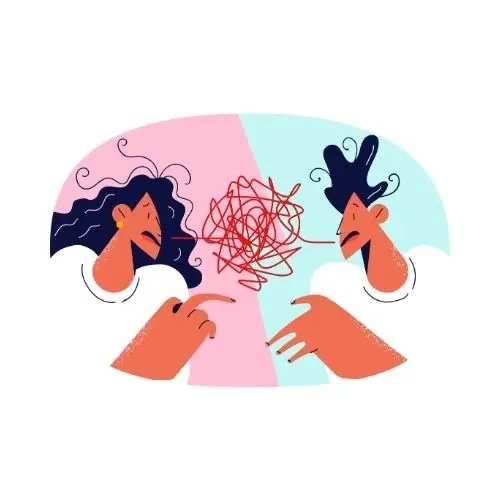
Toxic relationships often start happy, with your partner on their best behavior, but abusive patterns emerge gradually over time once they become comfortable. Here are some common stages:
1. Idealization Stage
Your partner showers you with praise and grand gestures. They seem too good to be true. It feels like you’re walking on air.
2. Imperfection Stage
Your partner starts to criticize small things about you. Their moods shift unexpectedly. They exhibit some jealous or controlling behaviors but justify or downplay them.
3. Disillusionment Stage
You begin seeing more warning signs of toxicity but are already emotionally invested. You make excuses for their behavior or blame yourself.
4. Reckoning Stage
Abusive patterns undeniably surface. Love-bombing and apologies after blow-ups. They deny problems, but you recognize you’re unhappy.
5. Decision Point
A realization that you deserve better. Confiding in others and seeking help. Understanding more about abuse cycles. Preparing to leave safely.
6. The Crossroads
Choosing to try to salvage things or walk away. Recognizing true change requires therapy, not just apologies. Leaving safely if needed.
Toxic relationships deteriorate in increments until suddenly you realize it’s become very unhealthy. It’s common to be unaware at first since abuse often builds slowly over time.
8 Healthy Relationship Green Flags
When beginning a new relationship, look for these positive signs that you’re on track for something healthy:
- Mutual trust, respect, and equality
- Secure attachment without smothering
- Healthy self-esteem on both sides
- Open, non-defensive communication
- Willingness to compromise
- Accountability for mistakes
- Support of each other’s individual growth
- Shared core values and life vision
If You Decide to Leave an Abusive Relationship
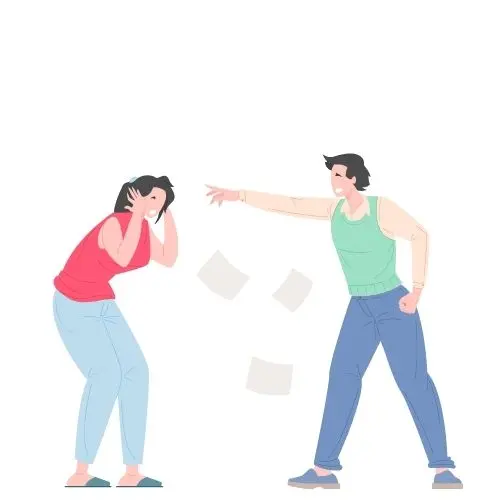
- Reach out to a domestic violence hotline or counselor for help with safety planning
- Line up an alternative place to stay
- Have emergency cash, important documents, and keys ready to go
- Get your devices checked for spyware
- Open a new bank account and credit cards if needed
- Tell trusted friends/family you’re planning to leave in case you need help
- Turn off location-sharing settings on your devices
- Create new email/social media accounts your partner can’t access
- Change passwords on accounts, wifi, etc. that your partner knows
- Be ready to get a protective order if your partner stalks or harasses you
There is Hope for Healthy Love
If you are experiencing repeated toxic relationship patterns, don’t ignore the red flags. Know that you deserve so much better. With courage, outside support, and re-training your instincts, you can break the cycle and find the healthy, loving relationship you long for.
Why People Stay in Toxic Relationships
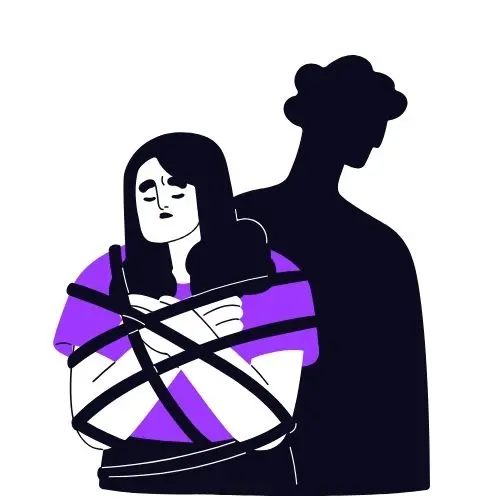
With all the negative effects, why do people stay in toxic relationships instead of leaving them? There are several common reasons:
- Fear of being alone
- Hope that their partner will change
- Comfort or familiarity
- Low self-esteem
- Financial dependence
- Guilt about leaving
- Manipulation from their partner
- Social isolation
You may tell yourself things like “It’s not that bad” or “They’re going through a tough time right now.” But the truth is, you deserve better than a toxic relationship.
How to Repair or Safely Exit a Toxic Relationship

If you see the signs of a toxic relationship in your own life, it’s important to take action. Here are some steps you can take:
- Have an honest conversation with your partner. Tell them the specific behaviors that seem toxic to you and how they make you feel. Find out if your partner is willing to work on change.
- Set firm boundaries. Decide what you will and will not tolerate in terms of behaviors, and stick to those boundaries.
- Seek couple’s counseling. An experienced therapist can offer perspective, teach communication skills, and help you determine if the relationship is worth saving.
- Build your support system. Surround yourself with people who remind you of your worth and value.
- Create a safety plan. If you decide to exit the relationship, make preparations to protect your physical, emotional, and financial well-being during the breakup.
- Trust your inner guidance. Listen to your intuition. If you feel chronically unsafe, unseen, manipulated, or mistreated, it may be time to leave.
With support and self-care, you can take control and create a healthy life for yourself, with or without this relationship. Remember—you deserve to feel loved, respected, and secure.
Finding a Healthy Relationship
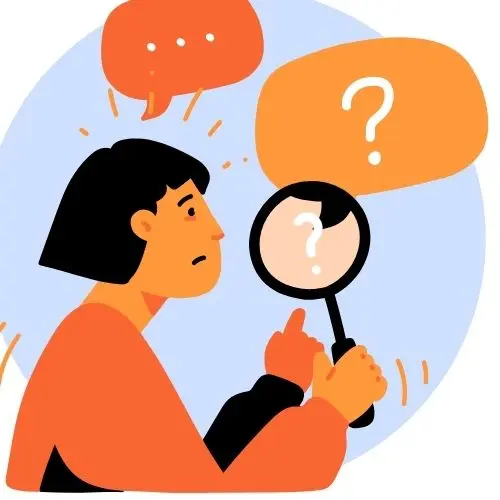
Once you leave behind relationship toxicity, you can begin to attract and nurture healthy love. Here are some characteristics of a strong, high-quality relationship:
- Mutual trust, respect, and honesty
- Secure attachment and emotional intimacy
- Support for each other’s growth and goals
- Compromise and conflict resolution
- Shared power that allows each partner independence
- Freedom to be yourself and share your full identity
- Laughter, fun, and enjoyment of each other’s company
A healthy relationship uplifts you and makes you feel secure. Seek out this balance of closeness and autonomy, and don’t settle for less. With self-awareness and commitment, you can develop relationships that help you thrive.
In Conclusion
Toxic relationships have serious detrimental effects on mental and emotional well-being. Pay attention to the warning signs, and be brutally honest about whether your relationship brings out your best self. Prioritize your safety and long-term happiness over guilt, obligation, or the comfort of the familiar. With courage and self-compassion, you can find greater fulfillment—either within the relationship or outside it. Trust your intuition, stick to your boundaries, and never forget your worth. You deserve to flourish.

